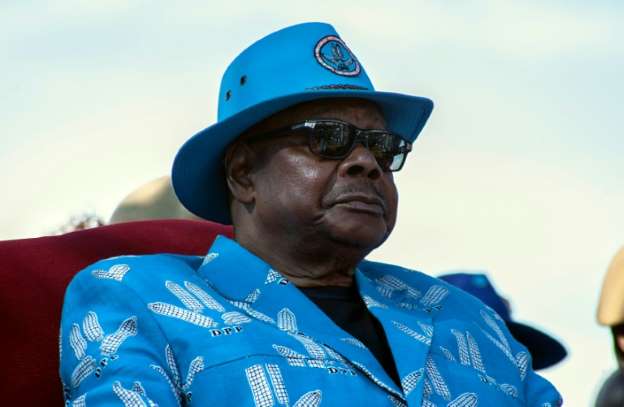LILONGWE, Malawi, May 19, 2019 (BSS/AFP) – Malawi elects a new president Tuesday with no clear frontrunner, but incumbent Peter Mutharika hopes his record of improving infrastructure will help him overcome two serious challengers.
But while the largely agricultural country has seen rapid development in recent years, it is still dependent on foreign aid and Mutharika, 78, has been accused of corruption and mismanagement.
The main rivals to Mutharika and the ruling Democratic Progressive Party (DPP) are opposition leader Lazarus Chakwera of the long-established Malawi Congress Party (MCP), and Saulos Chilima of the new United Transformation Movement (UTM).
Chilima, a 46-year-old former corporate executive, was Mutharika’s closest ally and his vice-president. But he fell out with the president and last year broke away to set up the UTM.
This will be the UTM’s first electoral test and they are hoping to tap into the massive youth vote. More than half of the 6.8-million registered voters are under 35.
The president’s other main rival is opposition leader Chakwera, who came second to Mutharika in the 2014 election, losing by just 450,000 votes.
This time around he has a high-profile ally in former president Joyce Banda, who has joined his campaign.
Malawians will also vote in lawmakers and local government councillors on Tuesday.
President Mutharika came to power vowing to tackle corruption.
But he himself was caught up in a major scandal when the country’s anti-graft agency implicated him in kickbacks over a multi-million-dollar contract to supply food to the police.
He shrugged off accusations of a $200,000 bribe, saying he “was convinced it was an honest donation” to his party.
– Too close to call –
“Malawians have lost trust in this administration,” Gift Trapence, of the Centre for the Development of People (CEDEP) rights action group, told AFP.
“We have had many cases of impunity in terms of not arresting corrupt people connected to the ruling party.
“Many people are very angry and want to cast a vote of no-confidence in the government.”
But some voters are ready to give another chance to Mutharika, who is bidding for his second and final term.
“I know that people want to try something new, but the president has my vote because there is evidence of the development that he has been carrying out,” Mark Mose, a 38-year-old subsistence farmer told AFP in Chimombo, Mutharika’s home village.
“Of course, he has not achieved everything that he promised but that is human nature.”
Malawi’s roads and sparse electrical supply have improved under Mutharika, and he is popular in rural areas for continuing fertiliser subsidies. Since 2014, inflation has fallen from 23 percent to below nine percent.
“I can assure you in the next five years, we will get to level of Singapore or Malaysia,” Mutharika told cheering supporters at his final rally on Saturday.
Jane Morley, of London-based Fitch Solutions risk consultancy, told AFP that the energy network and unemployment were key factors for voters.
“Opposition groups have worked hard to suggest that these issues are connected with corruption, due to the alleged misallocation of donor funds,” she said.
But Mutharika held some trump cards due to “the failure of the opposition to unite around a single candidate, combined with the electoral system under which the president is elected in a single round”, she added.
Under Malawi’s “winner takes all” system, Mutharika won in 2014 with just 36 percent of the vote. This year’s winner could secure the presidency with even less.
– Cash hand-outs banned –
An outside presidential candidate of the field of seven is Atupele Muluzi, of the United Democratic Front. He took his party into alliance with the DPP after the last election and now serves as health minister.
The election is the first since a new law forced parties to declare large donations from individuals and companies, and banned the once-common practice by candidates of giving cash handouts.
The result has been a colourful and peaceful campaign with parties distributing huge numbers of T-shirts, posters and other items to potential supporters.
“Because parties were not allowed to give out cash handouts, they invested funds in printing party material instead,” said political commentator Victor Banda.
Malawi won independence from colonial ruler Britain in 1964, and was then ruled by Hastings Banda as a one-party state until the first multi-party elections in 1994.
The country, which has a population of 18 million people, has one million adults living with HIV — one of the highest HIV prevalence rates in the world.



